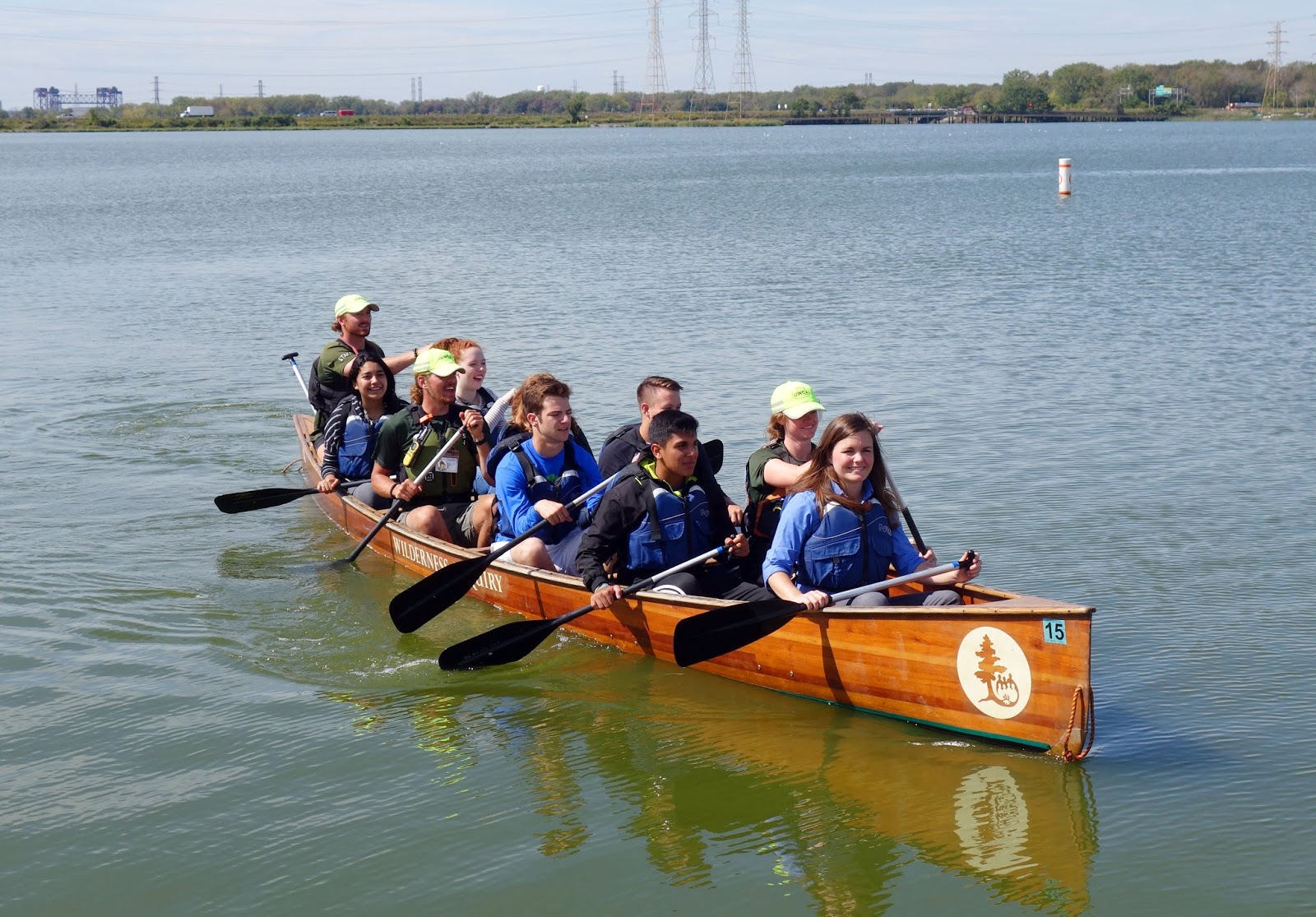Last week, I ventured out of the office and into the field to hit the waters of the recently restored Wolf Lake with about 200 students from Hammond, IN. The weather was perfect for two days of canoeing and environmental education. Compassion for nature starts in childhood, so when asked by some partners at U.S. EPA, I jumped at the chance to help provide youth with such a meaningful outdoor experience.
The EPA team and I stayed busy providing the students with learning experiences as they waited for their turn on the canoes. We brought the Enviroscape, and it was a hit. Students loved the interactive nature of the game and learned a lot about their local watershed and what they can do to protect it from different pollution sources. We also took them on hikes by the lake, picking up litter and identifying different plant species.
 We had a lot of fun teaching, but I must admit, the highlight of my two days at Wolf Lake was jumping into a canoe and paddling around on the calm water with the students. It was rewarding to see high school students drop their guard and excitedly point out different shorebirds or hear them discuss the need to clean up the pollution in northwest Indiana, completely unprompted by an adult.
We had a lot of fun teaching, but I must admit, the highlight of my two days at Wolf Lake was jumping into a canoe and paddling around on the calm water with the students. It was rewarding to see high school students drop their guard and excitedly point out different shorebirds or hear them discuss the need to clean up the pollution in northwest Indiana, completely unprompted by an adult. 


